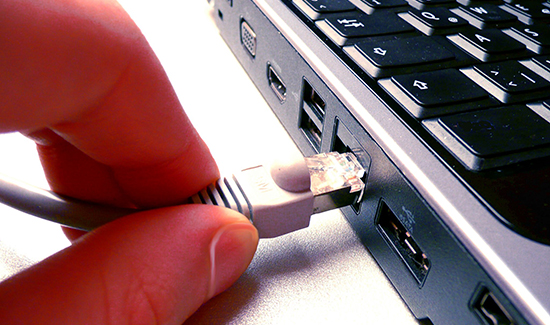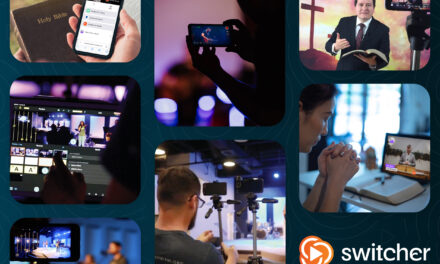3 Things You Can Do About It
We’ve all been distracted or discouraged by an interruption brought through technology, so why do we do it to ourselves? | by Carey Nieuwhof
How do you feel about your phone?
That’s an increasingly interesting question.
Ask me that five years ago and I would have told you I love mine.
My guess is that by now you might have a love/hate relationship with it.
You love what it gives you, but you’re not sure what it’s doing to you, and the emotions you experience while you scroll, tap and swipe are more mixed than in the past. Take your phone and devices away from you though, or forget them, and you immediately panic. A near-dread ensues.
I get it.
I’m writing a book on overwhelm and burnout that will come out in September 2020. The deeper I dive into the subject, the more I think the reason we’re all kind of numb and anxious has more to do with technology than we think.
Personally, I don’t like my phone nearly as much as I used to even three years ago. I find fewer things of real value on it. And yet it’s always in my hand or in my pocket.
There’s a tremendous irony, of course, in that you’re reading this post on a device, and this post only exists because of the very technology I’m critiquing. Duly noted.
But the reality is things are changing fast. A decade ago, I honestly believed that technology was neither good nor evil, it just revealed and amplified what was already there. Kind of like paper—you can use it to write poetry, transcribe scripture, craft a novel, paint a masterpiece, or write hate mail.
There are really good things on the internet for sure (and I search those things out and try to make sure this space is one of them). There are also some great things. But negativism seems far more prevalent today than it did a decade ago. It’s like we’re increasingly sucked into a negative feedback loop no one is sure how to escape. And it’s happening at our fingertips.
Apparently, we live in an age where we no longer own our devices. Our devices own us. And when technology runs us, it can ruin us.
Here’s why and how I’m changing my mind about technology.
-
NOTHING THAT IMPORTANT IS ACTUALLY HAPPENING, ALTHOUGH YOU THINK IT IS
I have a distinct advantage, I think, in being born before personal computers, let alone phones and devices, made their way into every home.
The advantage? I have a decent memory of what pre-digital life was like.
I remember using paper maps and not knowing if there was traffic ahead or not. I remember leaving our kids with sitters and having no way of knowing if they were okay until we got home—and they always were.
I drove thousands of miles in a car not worried about a breakdown because, well, if it happened, surely someone would come by in the next hour or two and I could get a ride into town for help.
And sometimes you just wandered into restaurants hoping the food was good.
The only way I knew what was happening in the world is if I turned on the radio or TV, and even then, you got a three-minute summary of what was happening, not a constant drone (I’ve never been a 24-hour news channel watcher).
Any sense of shock, outrage or concern wasn’t triggered often, and when it was, it was because something truly shocking, outrageous or concerning happened.
Fast-forward to today, and every day, you encounter a thousand triggers for sadness, outrage, anger, empathy, hurt, and frustration that your ancestors never did.
Today, as your feed follows you everywhere telling you about everything you don’t need to know and can’t really process, your senses get tripped into overload. Your brain gets hijacked, and as Tristan Harris points out, tech companies are intentionally triggering the anger and outrage cycles in our brains to get us to consume more. That sounds outrageous but read a little more deeply and widely on it…it’s at least worth considering that this may be happening.
Call it compassion fatigue, indifference or whatever you want to call it, you weren’t designed to process everything you’re processing. It leaves you feeling numb.
-
THE QUALITY OF YOUR WORK IS INCREASINGLY INFLUENCED BY THE QUANTITY OF YOUR LIKES
There’s a hard thing about doing good work.
Sometimes your best work doesn’t get immediate recognition. Sometimes real art gets rejected by your peers, great thinking gets criticized deeply, and new ideas that really are great ideas get shot down.
Take art for example. Vincent Van Gogh is a household name yet he only sold one painting in his lifetime—to a Belgium art dealer seven months before he died. The reason he painted so many self-portraits is he couldn’t afford to pay any subjects to pose. In 1990, one of Van Gogh’s paintings sold for $148 million, and his works now hang in the finest museums in the world.
Imagine if Van Gogh had stopped painting because of a lack of validation in his lifetime.
Yet we increasingly live in a place where we look for instant validation. Write a post…if no one reads it, shares it or likes it, you and I are tempted to scrap it. And never write on the subject again. More than a few people have posted pics on Instagram, and if it didn’t get enough likes fast enough, they took it down.
Quantity of likes is beginning to shape the quality of our work. True, sometimes the fact that no one appreciates what you’re doing might be a clue it’s time to change direction. But also consider this: your best work might be something nobody appreciates, admires or even understands at first.
Never let the quality of your work be determined by the quantity of your likes. Instant responses are not an inherently reliable indicator of enduring value.
Do the work you’re called to do, even if no one fully understands or appreciates it at first…or at all.
-
THE ANGER AND ENVY AREN’T HELPING ANYONE
So much of social these days is angry, and what isn’t angry often seems crafted to be jealousy-inducing or self-promoting.
Hate, narcissism, cynicism, insecurity and division fill our feeds. Notice that in the news cycle (whatever news source you favor) everything is breaking news these days. It used to be breaking news happened when there was a disaster or a crisis. Now, a simple response to something someone else said is spun as breaking news simply in a desperate, but effective, attempt to get your eyeballs.
As far as envy goes, more of us than ever are pretending to live lives that don’t actually exist. People with 300 followers are trying to act like celebrities who have millions of followers, and it’s just not that hard to make your life look more together than it really is.
The impact of all of this for me personally is that I’m increasingly bored with or discouraged by my phone. To the point where I probably won’t upgrade this fall, because…well, what’s the point.
-
MEANINGFUL THINKING IS DECLINING; UNDIGESTED OPINION IS ON THE RISE
We live in an age where someone’s opinion about an issue becomes our opinion, where someone’s reaction to an issue becomes our reaction, or our reaction to their reaction becomes what we really think.
It’s all too easy to read a headline, watch a two-minute video rant, scan a Reddit thread or see a status update and believe we understand an issue.
Really?
We do live in a paradox in which attention spans are getting shorter and longer at the same time, but so much of what passes as content on social is mostly undigested thought.
A while ago I was at a conference and I quoted a well-known author and got some negative emails about even mentioning him. Rather than reply in writing, I talked to the people in person about their concerns and in the process, asked them if they had ever read the author in question or listened to one of his talks. They hadn’t.
It’s fascinating (and a bit concerning) to me that we live in an age in which people can hold passionate opinions about something they know almost nothing about.
Sadly, this even includes our faith or lack of it.
If you push the ranting, raving and animated discussion aside and probe a little deeper, many people are three questions away from their worldview collapsing.
HOW TO CHANGE THE TRAJECTORY
In light of all this, what do you do?
The internet is not going away any time soon and technology is going to continue to transform our planet, lives and families. And I’m not selling my devices and going back to a manual typewriter or fountain pen any time soon. I’ll continue to be an early adopter.
I also lead a virtual company these days that produces virtual content (blogs, podcasts, courses and more). It’s 100 percent technology enabled and dependent.
But using technology and using it well are two very different things.
It also seems, that like all things, good is not inevitable. Technology will not automatically make us or things better. How we use it, steward it, harness it and leverage it will be the difference.
You can use technology to do good or to do evil, and good is not inevitable. You have to work at it.
Here are a few things that can help.
-
BE ONE OF THE GOOD PEOPLE: USE HELPFUL AND REAL AS YOUR FILTERS
When I think about the things that make a positive contribution online, helpful and real are two adjectives that spring to mind.
Tearing something down is a lot easier than building something. But it’s far more helpful to build than to tear down. One filter I try to use in everything I post or release is whether the material is helpful.
Will this help people see things a little more clearly?
Solve a problem they’re trying to solve?
Help them tackle an issue they’re wrestling with?
If it won’t, I don’t publish it. I’m not sure I always get this right, but it’s a goal. And as much as critique is part of my work, I want my contribution to be encouraging, not discouraging, constructive, not destructive. I think those are worthy goals.
Second, be real.
You’re a real person. You don’t need to face-filter yourself to make yourself look better than you are. After all, the people who know you in real life see your wrinkles and know your teeth aren’t that white. Your social media and posts should share the real you, not the ideal you.
Share your good moments but be honest about the bad ones. Even on my personal feed (which is pretty concentrated on Insta Stories these days), I’ll let mispronounced words stay on the feed, show my mistakes. As much as you want to project an ideal, people connect with real.
-
UNFOLLOW: CONSUME MORE STRATEGICALLY
You don’t have to follow angry, negative ranters. So don’t.
And look for thoughtful, intelligent people to follow. Look for longer form content that can carry an idea beyond a soundbite or phrase.
And…this is getting harder every year given our hyper-polarized culture—get out of your echo chamber and follow people who are different than you, who don’t think the way you think, believe exactly what you believe, or who vote the way you vote. Don’t follow them to debate them. Follow them to learn from them.
A variety of viewpoints makes your viewpoint more nuanced, deeper and more intelligent.
-
CONSUME LESS. REFLECT MORE
I have to work hard at this because it’s so easy to just stay on your phone all day.
Years ago, I turned almost all notifications off on my devices and I leave my phone on Do Not Disturb 99 percent of the time (unless I’m expecting something urgent…which is rare).
But I think it’s got to be deeper than that. Leave your devices behind. You really will survive.
- Go for a walk and don’t count your steps.
- Read a book made of paper.
- Journal using a pen and paper.
- Let your thoughts digest.
- Have thoughts that aren’t just a reaction to what someone else was thinking.
- Pray, reflect, absorb.
- Consume less. Reflect more. You’ll have a much richer life, and my guess the anxiety you feel will lessen.
- Content consumed without content processed is useless.
Time away from the digital space will make your contribution to it much richer.






